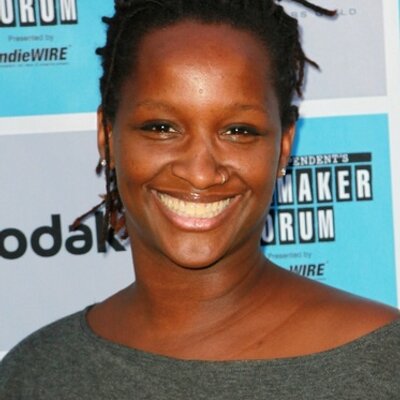During the New York Film Festival panel “New Hollywood?” last Sunday, some of the movie industry’s game-changers spoke about the work that needs to be done in order to break down Hollywood’s systemic racism and sexism.
Panelists included Dear White People producer Effie Brown, Gamechanger Films’ Mynette Louie, producer Ira Deutchman, writer Mark Harris, AK Worldwide executive Susan Lewis, Rose McGowan, and producer Lydia Dean Pilcher.
Not surprisingly, Brown was asked by moderator Eugene Hernandez to speak to her recent experiences on Project Greenlight. Brown is on the series’ judging panel; in a recent episode, she was expressing the importance of diverse directors when Matt Damon—someone who has directly benefited from Hollywood’s striaght-white-maleness—spoke over her to argue that representation in a film’s creative team is irrelevant. According to Brown, she worried that disagreeing with Damon might have permanent ramifications on her career (transcript via Indiewire):
That was the nice cut. I couldn’t go head on against the biggest movie star in the world—I want to work again. This is a thing we all have to think about. I’m a ballsy chick, but he has a number one movie and an Oscar. I’m trying to pay my mortgage,” she continued. “What was brilliant is that on social media, there was an immediate call and response. People tweeted and were on Facebook. This is clearly no longer OK.
[…] I don’t want to be bashing the dude, because I do feel that his view, in his mind it made sense, and I do think it’s the view of quite a few people, because it made it on [the show]. And I don’t feel that he’s a malicious person, and I don’t feel they’re malicious…. They just don’t think about it.
What really surprised me is that you guys got it. I really did think that I was alone with that whole diversity comment. Like maybe Black Twitter will get it. I even said that when I talked to HBO. ‘Black Twitter is real.’ What made me feel great is that it grew. It became a bit of a moment, and everybody—black, white, Asian, everybody—came up and said, ‘This didn’t make any sense.’ But I still haven’t heard from Matt Damon.
Mynette Louie also spoke to the Project Greenlight response: “I think social media is giving women of color a voice, and we’re really loud.”
Actress Rose McGowan, who earlier this year was fired by her agent for speaking up about Hollywood sexism, reiterated Brown’s point that many men in Hollywood aren’t being intentionally harmful—they’re just ignorant: “Most aren’t these terrible men; it just hasn’t occurred to them. When it occurs to them, sometimes great things happen.”
Susan Lewis also said that she hopes by speaking up, she will help other creators recognize when they’re perpetuating a racist trope: “I feel like I have to be a teacher to some people. I have to explain why your pitch may be really offensive because it’s about a magical Negro. … But maybe I can make an impact. Maybe they can be like, ‘Oh, you’re making a good point.'”
Many of the panelists expressed that they’re happy to have found mediums other than film to work in; according to Louie, “I think film is becoming like theater, where it’s a very rarified art form that is for white people mostly.”
Says Brown,
TV is challenging film no matter what. I’m the queen of the little movie, and I’m over it. It’s so rare to make money on a little movie, and it’s so hard to make money on a little movie. So I think the Internet and also doing TV, is the way to go. And the fact that we can be there and hold down the fort—I love it.
To read more about the panel, head over to Indiewire.
(image via Effie Brown on Twitter)
—Please make note of The Mary Sue’s general comment policy.—
Do you follow The Mary Sue on Twitter, Facebook, Tumblr, Pinterest, & Google +?









Published: Oct 9, 2015 04:18 pm